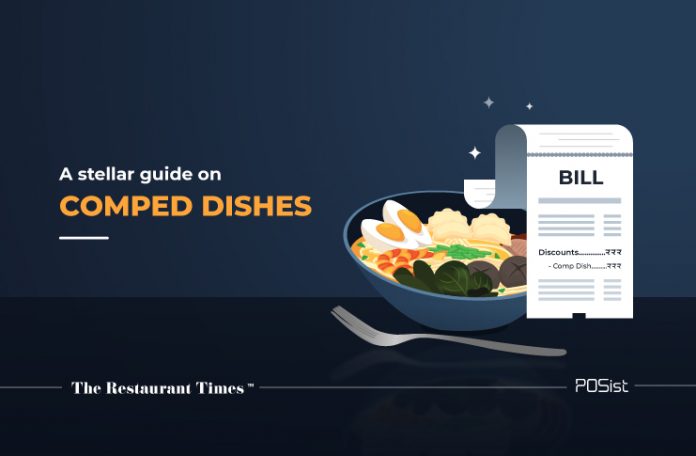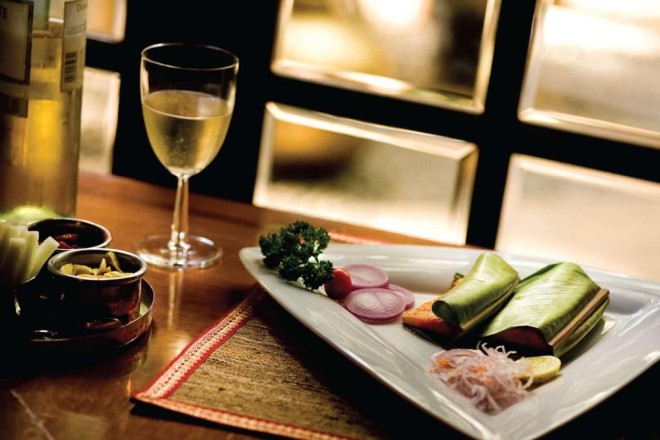The newly introduced trend of offering complimentary dishes or drinks by online food aggregators like Zomato has been a smart tactical tool that many restaurants have adopted to attract more customers. As a part of the overall marketing strategies that restaurants take to reach out to the customers, complimentary dishes or drinks is necessary to turn around a bad customer experience. In spite of keeping strict control over all the processes in the restaurant, there might be some days when the customer’s experience with the food or service turns bitter. There may be a delay in the kitchen, wrong estimations in the recipe, order mishandling by the servers or in the worst scenarios, presence of foreign material in the food. Compensating guests with a free dish or a ‘comp dish’ has been useful to make it up to the angry or dissatisfied customers.
Keeping in mind the increasing costs of running a restaurant, Is comping a profitable solution? In this article, we will uncover everything you wanted to know about comped dishes.
Why Do Restaurants Comp Dishes?
Comped is a short form of the word ‘complimentary’. A Comped dish is complimentary or a free of charge dish that restaurants offer to either attract more customers or to compensate a customer whose dine-in experience has not been satisfactory.
If a customer’s experience has been unsatisfactory and goes unnoticed, it evokes dissatisfaction and hence tarnishes the image of the restaurant brand. An unsatisfied customer is also not likely to return to the restaurant, so the risk of losing out on regular customer is also a concern for the restaurant. Digital media is one of the most popular media through which customers search for restaurants. Bad online reviews from unsatisfied customers can severely affect the overall perception of the brand.
While comps can be a great gesture to attract customers or make it up to an unsatisfied customer, they can incur enormous costs for restaurants. For every dissatisfied customer, offering a free meal would not be realistic. It may also encourage customers to find more ways to wilfully demand comps.
Here’s a quick overview of the do’s and don’t of comping dishes.
When Should You Comp A Dish?
Delay in the service: Food taking too long to reach to the customer’s table due to delay in services is probably the most significant cause of dissatisfaction. Short-staffed kitchen, rush hours, inventory understock or maintenance, there can be many issues causing the delay. Comping can be a great way of compensating for the inconvenience caused to the customer.
Server Mistakes: Did the server spill that curry on your customer? Was a non-vegetarian item served to a customer who had asked for a vegetarian dish? Before your customers turn furious and mark a bad review for your restaurant, comping dish would be a responsible and apologetic gesture.
Stale Food: If the raw materials required to make a meal are expired, or the dishes served to the customers have been prepared with an inadequate estimation of the ingredients, it won’t take long for your customers to form a wrong opinion about your brand. Comping dish would be the best solution to make it up to the customer.
Spotting filthy substances: When customers spot hair strands or fly in their food, it evokes a feeling of disgust and is an immediate put-off. In a survey on diners, 81% said that if they spot a pest on their plates, they are not likely to return to the restaurant. Such a scenario wouldn’t take long to create a spark on online media. Therefore, it would be best to take immediate action and comp the meal.
When Should You Not Comp A Dish?
Short delay in service: The busy days in your restaurant can be hectic for your restaurant and kitchen staff. With a considerable footfall, hefty bills to be processed and more orders being placed and prepared, there might be short delays where your staff would be getting constant reminders from the customers. This may cause discomfort to the customers but your restaurant is not accountable to comp in such a scenario.
For influencers: It’s great to spot a celebrity or an influencer choosing to dine-in in your restaurant. As a thank you gesture, instead of comping the entire bill, you can opt for offering them a complimentary appetizer or dessert. This would elevate their overall experience and work as an excellent tool for increasing your brand value.
High Expectations: Every restaurant has a unique taste and a serving style. If a customer is unhappy with the food presentation, portion size or service style, it doesn’t call for compensating a meal. Pleasing customers that have a set of high expectations, with a comp meal is also not profitable for your restaurant brand.
Choosing a dish by its name: A customer went by the name of a famous dish of your restaurant and placed an order only to realize that the dish doesn’t suit his taste. It is unaccountable for a restaurant to comp the customer’s meal in such a scenario.
Other Options To Compensate Comped Dishes
There would often be times when your customer’s complaints would be reasonable but replacing food would not be in favour of your restaurant’s standards. As providing a seamless experience to the customer is also a top priority for every restaurant, there are measures other than comping dishes can be used to improve customer experience.
You can offer a particular discount on the bill or add a complimentary appetizer, beverage or dessert. On a similar note, you can give future discounts to your customer to compensate for the bad experience. Similarly for the delivery or takeaway orders that receive negative feedback, you can promise a future discount on the total amount. This will create a better impression and give your restaurant an excellent opportunity to win the trust of your customers.
Ways To Control The Comp Costs
Comped dishes can be one of the best solutions for improving customer experience but they can also significantly add to the costs incurred by your restaurant. To understand the cost of each comped dish, it is first vital to maintain a track of all such items. This is to ensure that there is no mismatch in the financial records Restaurant POS systems are the best-tracking tools that effectively help in keeping a record of all the comped dishes.
If your restaurant gives away too many comped dishes, it would be the right time for your restaurant to do an in-depth analysis to understand the main reasons behind it. Is your kitchen not maintaining adequate levels of inventory? Is your staff well trained to meet the customer’s expectations? Do you need to improvise your restaurant processes and systems? A regular review of comped dishes will significantly improve the efficiency of your restaurant and reduce the need for comping.
A great way to avoid giving away too much of comped dishes is through continually taking feedback from the customers. Restaurant managers and servers can maintain an effective flow of communication with the customers by keeping an active check on the customer’s liking throughout their dine-in experience. A centralized CRM system that collects the entire customer data such as order details, feedback, suggestions, can provide a great link to the restaurateurs to take appropriate actions and improve the services.

















